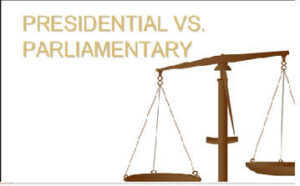Globalization has had a significant impact on festivals around the world in various ways. Here are some key ways in which globalization has influenced festivals:
Cultural Exchange
Globalization has facilitated increased cultural exchange between different countries and regions. Festivals often serve as platforms for showcasing and sharing cultural traditions, and globalization has accelerated this process. People from different parts of the world can now experience and appreciate diverse cultural practices through festivals.
Diversity in Festivals
Festivals have become more diverse as a result of globalization. Many festivals incorporate elements from different cultures, leading to a fusion of traditions. This diversity is often celebrated as it reflects the interconnectedness of the world and the ability of people to appreciate and adopt aspects of other cultures.
Commercialization
Globalization has led to the commercialization of festivals. With increased access to global markets, festivals are often commercialized to attract tourists and generate revenue. This can sometimes lead to a shift in the focus of the festival from its cultural or religious roots to more commercial interests.
Tourism Impact
Globalization has made travel more accessible, leading to an increase in international tourism. Many festivals now attract visitors from around the world, contributing to the local economy but also sometimes altering the traditional nature of the festivals to cater to a global audience.
Technology and Communication
Advances in communication technology have allowed festivals to be broadcast globally, reaching audiences far beyond the local community. This global visibility can lead to increased recognition and participation in festivals.
Cultural Homogenization
There is a concern that globalization may contribute to cultural homogenization, where certain elements of festivals are standardized to appeal to a global audience. This can result in the loss of unique cultural characteristics and traditions.
Increased Collaboration
Globalization has facilitated collaboration between artists, performers, and organizers from different parts of the world. Festivals often feature international artists and performances, creating a more interconnected global cultural scene.
Impact on Traditional Practices
Some argue that globalization has led to the dilution or alteration of traditional festival practices. As festivals adapt to global influences, there may be a shift away from authentic and traditional elements in favor of more commercially appealing aspects.
In summary, while globalization has brought about positive aspects such as increased cultural exchange and collaboration, it has also introduced challenges related to commercialization, potential cultural homogenization, and the impact on traditional practices. The extent to which these changes occur varies from one festival to another and depends on factors such as the level of globalization, local community involvement, and the festival’s adaptability to evolving cultural dynamics.
Global media coverage allows people around the world to witness how Eid is celebrated in different countries. Television, social media, and online platforms showcase diverse Eid traditions, ceremonies, and festivities, contributing to a global understanding of the festival.
Challenges to Traditional Practices
There is a concern that globalization may lead to the dilution of traditional Eid practices. The adoption of certain global trends or commercial influences might overshadow the more traditional and religious aspects of the festival.
Cross-Cultural Awareness
Globalization fosters cross-cultural awareness, and non-Muslims may become more familiar with Eid and its significance. This increased awareness can contribute to a better understanding of Islamic traditions and promote cultural harmony.
📍 English Language Educator | Blogger & Content Strategist | 7+ Years in Educational Blogging
Nosheen Bashir is a dedicated English teacher and experienced blogger with over seven years of expertise in content creation and educational writing. Passionate about language, literature, and effective communication, she combines her teaching experience with blogging skills to create insightful, research-backed content that helps learners and educators alike.
🔹 Expertise & Achievements:
✔ English Language Education: A skilled educator with years of experience in teaching English grammar, literature, and communication skills to students of varying levels.
✔ Educational Blogging: Running a successful blog for 7+ years, delivering well-structured, engaging content on language learning, writing techniques, and academic success.
✔ SEO & Content Strategy: Specializes in creating high-ranking, authoritative articles that follow Google’s EEAT principles, ensuring content that is both informative and search-friendly.
✔ Student-Centric Approach: Committed to making English easier, engaging, and accessible, helping readers and students improve their language proficiency.
🚀 With a passion for teaching and writing, Nosheen Bashir is dedicated to crafting educational content that empowers students, teachers, and language enthusiasts worldwide.









